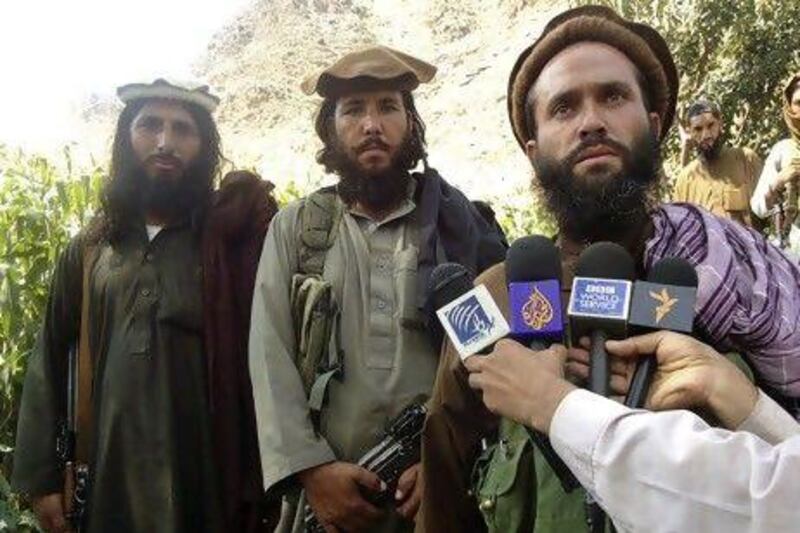KABUL // Afghanistan's intelligence agency said yesterday its operatives have confirmed that the son of the founder of the powerful Haqqani militant network was killed in a US drone strike in Pakistan, even as the Taliban vowed that he was alive and well.
Shafiquallh Tahriri, the spokesman for Afghanistan's National Directorate of Security, said Badruddin Haqqani was killed last week. He did not provide any further details, and would not say what information the agency's operatives were basing their conclusion on.
Mr Tahiri's account is similar to one provided on Saturday by a senior Taliban leader who said Haqqani was killed in a drone strike.
It also hews closely to a version provided by Pakistani officials who said they were 90 per cent sure the militant commander was killed on Tuesday in an attack in Pakistan's North Waziristan tribal region.
Haqqani's death would mark a major blow to the organisation founded by his father, Jalaluddin Haqqani, which is viewed by the US as a powerful enemy in Afghanistan. The son is considered the network's day-to-day operations commander.
The Haqqani network has been blamed for a series of high-profile attacks and kidnappings in Afghanistan, and the US considers it one of the most powerful militant groups operating in the country.
The Taliban, who are closely allied with the Haqqani network, have rejected reports of Haqqani's death.
Zabiullah Mujahid, a Taliban spokesman, said Haqqani is alive and in good health in Afghanistan.
If confirmed, his death would follow that of Mullah Dadullah, the leader of the Pakistani Taliban in Pakistan's Bajur region. He was killed along with eleven others, including his deputy in an airstrike in Afghanistan's Kunar region on Friday.
Dozens of militants from Afghanistan attacked an anti-Taliban militia post in Bajur for the third day yesterday, sparking fighting that killed one soldier and 20 militants, a Pakistani official said. In addition to the dead, four soldiers and four militiamen were wounded, said Jahangir Azam Wazir, a local government administrator.
The US said recently it expects Pakistan to launch an operation soon against the Pakistani Taliban in North Waziristan. But analysts doubt they will target the Haqqani network and other militants fighting in Afghanistan because they are not seen as much of a threat to Pakistan.
Islamabad also has historical ties with the Haqqani network, and many analysts believe it is seen as an important potential ally in Afghanistan after foreign forces withdraw. Pakistani military officials have said privately that they plan to increase the pressure against militants in North Waziristan slowly and not conduct a sweeping offensive as they have done in the other parts of the tribal region.
Hundreds of tribal elders, religious leaders and militants held a meeting in North Waziristan on Saturday and called on Pakistan not to launch a military operation, one of the participants said yesterday.






